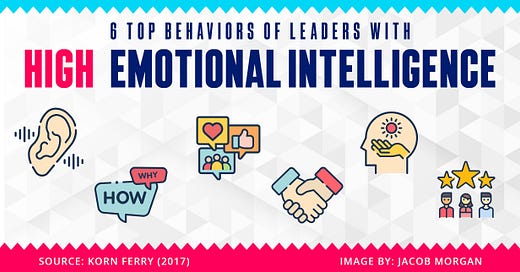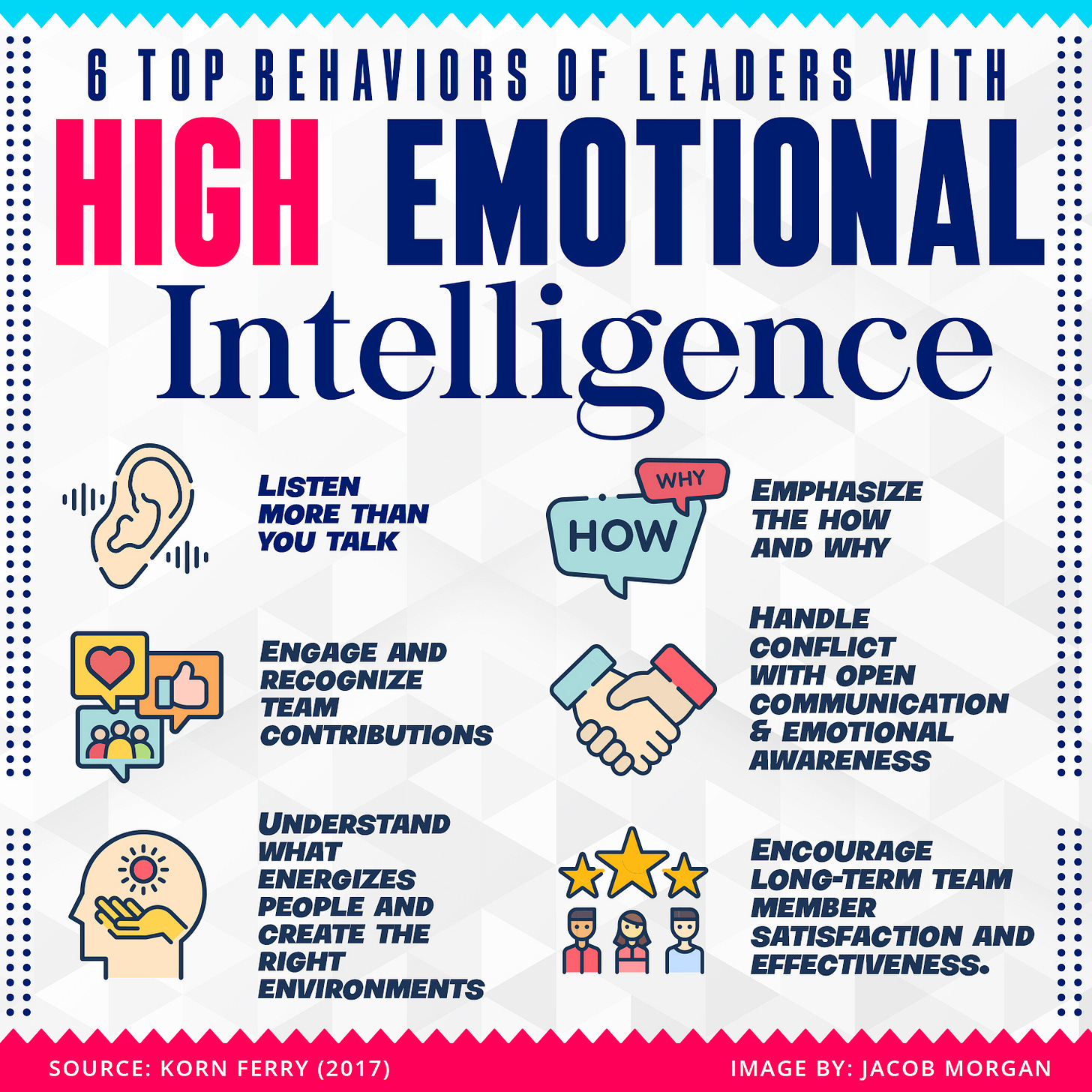6 Top Behaviors of Leaders with High Emotional Intelligence
Understanding and Cultivating the Five Key Components of EQ
This is a free post, consider becoming a paid subscriber to get access to my best content and latest thinking, including exclusive videos, leadership research, insights, and more! Start your day with the world’s top leaders.
Greatness Graphics are visuals which distill leadership concepts and ideas into something fun, easy, and practical!
Emotional intelligence is crucial for leaders because it makes a big difference in how they lead their teams. Leaders with high emotional intelligence understand and control their own emotions, and they're great at connecting with others. This helps create a positive work environment where trust and collaboration thrive. They handle challenges with resilience and inspire their team members to do the same. By empathizing with their team, they can provide the right support and motivation for growth. Simply put, emotionally intelligent leaders bring out the best in their teams, driving productivity and success.
There are six crucial components to EQ:
1. Self-awareness
This is the ability to recognize and understand your own emotions, strengths, weaknesses, values, and drives. It involves being aware of how your emotions affect your actions and decisions. Self-aware individuals are able to accurately assess their own abilities and have a high level of self-confidence.
2. Self-regulation
This involves the ability to manage your emotions, particularly in stressful situations. It's about being able to stay in control and not make impulsive decisions under pressure. Self-regulation also involves being adaptable to change and being able to say no when necessary.
3. Internal motivation
This is the drive to achieve for the sake of achievement. It's about having a passion for what you do, being committed to your work, and having a positive outlook. Internally motivated individuals are often more productive and effective in their roles.
4. Empathy
This is the ability to understand and share the feelings of others. It involves being able to recognize and understand the emotional states of others, and respond to them appropriately. Empathy is crucial in building and maintaining healthy relationships, both personally and professionally.
5. Social skills
This involves the ability to manage relationships and build networks. It's about being able to find common ground with others, build rapport, and maintain good relationships. Good social skills are crucial for effective communication, conflict management, and teamwork.
6. Encourage long-term team member satisfaction and effectiveness
This means means fostering a supportive and engaging work environment that not only meets the immediate needs of employees, but also nurtures their professional growth and personal fulfillment. It entails building trust and open communication, providing consistent feedback and recognition, offering opportunities for career advancement, and promoting a balance between work and personal life, thereby creating a workforce that is motivated, productive, and committed in the long run.
According to research by Talentsmart, 90% of top performers have high emotional intelligence. Each of these components plays a crucial role in emotional intelligence (EQ). By developing and improving these skills, individuals can enhance their EQ, which can lead to better decision-making, improved relationships, and greater success in both personal and professional life.







